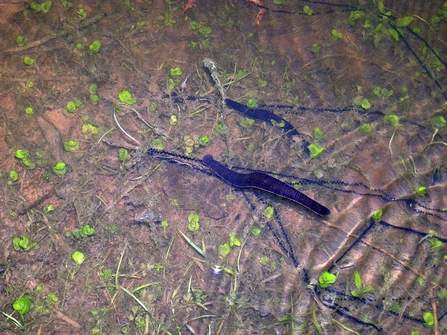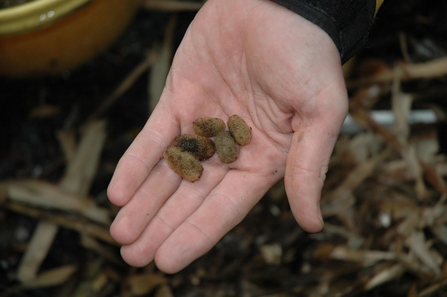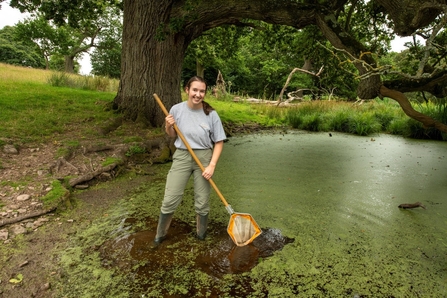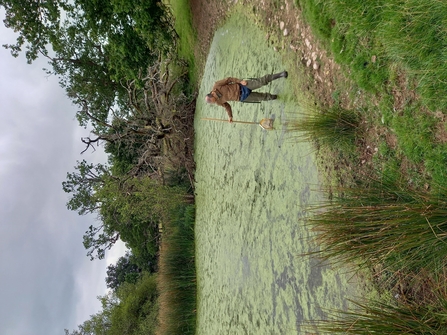Ice Age Ponds are important wildlife havens, due to their ephemeral nature and ancient existence. I am sure by now, if you have read our previous blogs, you have a good appreciation for these fascinating habitats (and if not, then check our other blogs out!) and what great places they are for protected species such as the popular Great Crested Newt, but have you heard about how they may play a role in the recovery of the extremely rare Medicinal Leech (Hirudo medicinalis)?
Medicinal Leeches, the UKs largest (and most colourful) leech was once found across the country. They have a rich history linked with British medicine, and were commonly used as medicinal cures during the medieval times. Even today leeches play an important role in medicine and are still used to increase blood circulation in some countries.
The medicinal leech is the only UK leech that can feed on human blood, and will feed on a range of species, most commonly frogs (both adult and tadpoles) but will also prey on cattle and deer. Unlike other leeches found in Britain. they are the only species capable of drawing mammalian blood and they have three jaws containing 100 teeth, growing up to 20 cm long!





